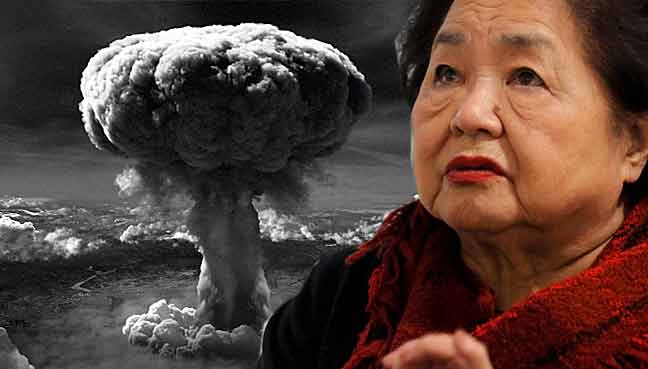In January we celebrated the entry into force of the new UN treaty prohibiting nuclear weapons, but our joy was short-lived. On 26/02/21, we heard from Shadow Defence Secretary John Healey that Labour’s support for the ‘nuclear deterrent’ is ‘non-negotiable’. Much worse was to come with the publication of the Government’s Integrated Review of Security, Defence, Development and Foreign Policy on 16/03/21.
MAW shares the widespread shock at the disgraceful announcement that the cap on the number of nuclear warheads will be increased by 40%, allowing for a total of 260. This move is in clear contravention of Article VI of the Nuclear Non-Proliferation Treaty (NPT), signed and ratified by the UK in 1970. The NPT was only ever intended as a temporary measure – to ensure that non-nuclear weapon states would not acquire these weapons while the nuclear-armed states were in the process of getting rid of theirs.
Yet here we are, more than 50 years later and not only do we still have our nuclear weapons but we are in the process of renewing them and increasing the number of warheads!
In the House of Commons debate following the Prime Minister’s statement on the Review, several MPs queried how the increase could possibly be in line with international law, with Ian Blackford angrily demanding to know who gave the government the right to renege on its obligations to the NPT. This question, as with all similar, was left unanswered, so bedazzled is the Prime Minister by ‘our incredible deterrent’. (Any MP who shares that view of these genocidal monstrosities should be made to sit and listen to Setsuko Thurlow’s acceptance speech at the 2017 Nobel Peace Prize ceremony.) Caroline Lucas pointed out that our right to retain what the Foreign Secretary had earlier called ‘this ultimate insurance policy’ could be claimed by other countries, and it was hugely ironic that in his answer to the very next question the PM denounced Iran’s desire to develop such weapons.
In addition to urging the PM to reconsider his commitment to retaining nuclear weapons, MAW had raised other concerns, too, in its submission of evidence to the Integrated Review: the need to redefine ‘security’ in terms of human and planetary well-being rather than dependence on military might, to establish an ethical foreign policy with genuine support for the UN and to provide effective control of the arms trade. Sadly, there is little cause for real hope here either. Occasional lip-service is paid to some of our ideas but without any meaningful plans of action .
Britain is to be ‘a force for good in the world’, says the Review, with an ‘approach that puts diplomacy first’, ‘upholding human rights’, working to ‘restore a spirit of greater international cooperation, based on dialogue and compromise’ and seeking to ‘reinforce and renew existing pillars of the international order – such as the UN’. No suggestions are made, though, for how the UN might be supported, strengthened and reformed, the better to fulfil its founding ideals. ‘Dispute resolution: as part of a more effective and focused approach to addressing conflict and instability through prevention.’ All good phrases but, sadly, the overall impression is of vague mollifying flannel leading to little real difference when it comes to action. If as much space and detail had been devoted to these matters as to those concerning cyber security and operations, the declarations might have been more convincing.
A very positive aspect of the review, however, is the priority to be given to tackling climate change and biodiversity loss: ‘long-term challenges that if left unchecked threaten the future of humanity’, and the recognition that climate change and global health risks count as actual security issues, threatening global resilience and requiring urgent action. Let’s hope that these good intentions for multilateral co-operation don’t become overshadowed by the hubris and aggression that seem all too often to be bubbling below the surface.
The PM’s promoted vision of the UK as a benevolent leader on the world stage, upholding universal human rights, co-operating with open democratic societies and holding to account those involved in serious human rights violations and abuses seems at odds with, for example, our close association with Saudi Arabia and other Gulf States. No mention is made of bringing an ethical dimension to foreign policy nor of controlling the arms trade, nor of how soon the ‘temporary’ cut in overseas aid will be reversed. Questions on these matters to the PM following his statement were either evaded or ridiculed. The old chestnut, ‘We have the toughest arms export regime in the world’, was trotted out – true, but we fail to follow our own guidelines, there is no functioning system of scrutiny and, it seems, no plans to introduce one.
Over the last two years, increasing awareness of the climate crisis followed by the ravages of the global pandemic have brought into sharp focus the urgent need for genuine international co-operation and better ways of doing things: better ways of resolving conflict, proper regard for human rights with the refusal to allow manipulation by powerful states or big business, fairer distribution of resources. Sadly, there is little sign from this review that ‘Global Britain’ will do much to address any of these challenges.
Hilary Evans
March 2021



